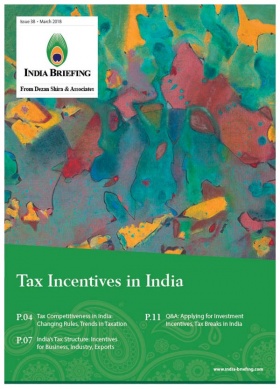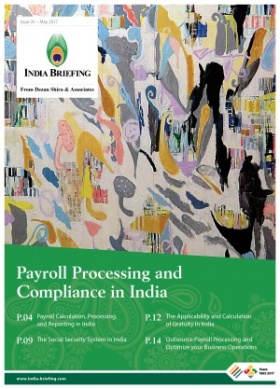Corporate Social Responsibility in India: Examining the Scope for SMEs
Companies in India with a net profit of more than US$750,000 (Rs 5 crores) in a single financial year are mandated by the government to spend a minimum of two percent of their average net profits of the last three years (before tax) on social causes in the country.
This spending is called the corporate social responsibility (CSR) initiative, and can apply to small and medium-sized (SMEs) companies as well – if they meet the profit-linked criteria.
A company with CSR projects does not receive any additional tax exemptions. Exemptions may be granted for agricultural, health, rural, and skill development projects, among others, but only under the Income-tax Act, 1961.
Since SMEs are sensitive to changing market patterns, with sales performances tying into market fluctuations, they can experience variations in their net incomes.
Given this scenario, SMEs must maintain the balance between complying with CSR recommendations while keeping operational costs low.
Firms may also choose to employ a CSR consultant to manage their CSR portfolio.
Monitoring CSR spending
Currently, there is no official mechanism to monitor or regulate CSR spending in India.
However, the board of a company must report its CSR expenditure, based on the recommendations of its own CSR committee, on its website and annual report. Any failure to spend the amount allocated must be explained through the same.
The unutilized CSR funds in the current year are to be added to the CSR expenditure of the following year. CSR expenditure cannot be claimed as business expenditure.
On average, in India, 70 percent of CSR contributions originate from private companies.
Making the best use of limited resources
SMEs are permitted to collaborate with other SMEs to create an efficient CSR program by pooling their limited resources. They can also outsource their responsibility to an NGO and monitor all activity through periodic impact assessment reports.
However, several SMEs, with limited and fluctuating profits, avoid collaborating with other companies to circumvent potential management issues. They may simply choose to make financial contributions to any federal or state fund, like the Prime Minister’s National Relief Fund. This allows the SME to avoid diverting valuable human resources in maintaining extensive records of CSR initiatives.
Sarfaraz Syed, Advisor, CSR and Sustainability, acknowledges these sensitivities, and states that companies must converge on their core competencies when setting up CSR programs. Syed says, “CSR programs addressing social challenges are slow, tedious, and complex. So, companies need to build in-house capacities and make suitable long-term commitments. The process is more to do with internal preparedness than finding external vehicles for delivery of CSR”.
He adds, “The motivation to initiate CSR programs for SMEs can range from enhancing business benefits, improving stakeholder engagement or merely complying with legal obligations. However, strategic CSR will only pay off if it is mainstreamed with the business. SMEs possess the advantage of quick decision making, and can pool resources with like-minded companies to address local social issues of common interest as against big corporations and multinationals”.
For instance, companies may align their CSR investments along resource and energy efficiency strategies, for example, along the lines of the United Nations’ sustainable development goals. These programs require limited funding, provide companies with the space to adopt green practices themselves, and present the company with a clear marketing strategy within the local community.
CSR Cell
The CSR Cell operates under the jurisdiction of the Ministry of Corporate Affairs. The Cell collates and maintains data related specifically to CSR in India. Their office is located in New Delhi.
We provide the details below.
CSR Cell,
Shastri Bhawan,
New Delhi, India 110001
Phone: +91 011 123 4567
Fax: +91 011 123 4567
Email: contactus.csr@gov.in
Website: http://www.csr.gov.in/CSR/about-us.php
About Us
India Briefing is published by Asia Briefing, a subsidiary of Dezan Shira & Associates. We produce material for foreign investors throughout Eurasia, including ASEAN, China, Indonesia, Russia, the Silk Road, & Vietnam. For editorial matters please contact us here and for a complimentary subscription to our products, please click here.
Dezan Shira & Associates provide business intelligence, due diligence, legal, tax and advisory services throughout India and the Asian region. We maintain offices in Delhi and Mumbai and throughout China, South-East Asia, India, and Russia. For assistance with India investment issues or into Asia overall, please contact us at india@dezshira.com or visit us at www.dezshira.com.
- Previous Article How to Set Up a Private Limited Company in India
- Next Article India to Make Demat Shares Mandatory, Introduce New Disclosure Rules for Companies














